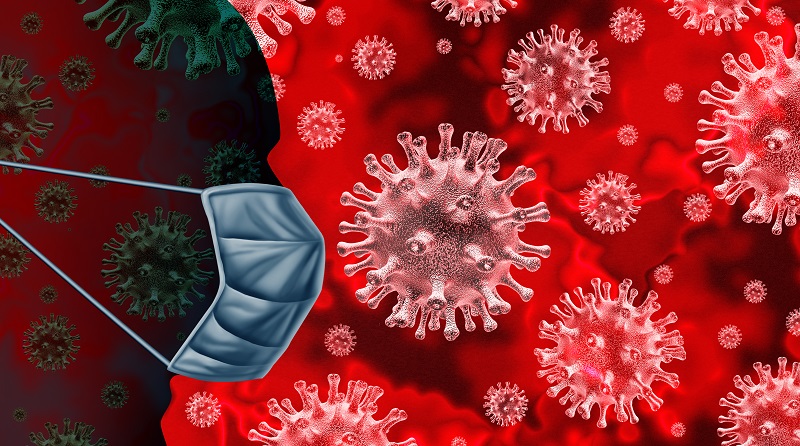Headache, runny nose, and sore throat are obvious signs your body is fighting something. The question is. what is it? It could be a cold, the flu, or COVID. But how do you know?

When you were sick, you may not have had access to a COVID test.
If you did, you may have tested to early and got a false negative.
Or maybe your symptoms went away by the time you could test.
Now you’re left wondering what you were sick with last month, or even last year. There is a way to know if it was COVID or not, but it’s complicated.
Comparing Cloth Masks and Respirator Face Coverings in the Context of the Omicron Variant
Telling the difference between COVID-19 and other illnesses
Antibody, or serology testing, is how to tell if you had COVID or not. After exposure to the virus, your body creates antibodies to fight it. The antibody tests look for the antibodies to verify past infection.
These antibodies are also formed after you receive the COVID-19 vaccine, but these tests know the difference. Antibodies created against the spike protein (S), are caused by vaccination. Antibodies against the nucleocapsid (N), are created by prior infection.
If the test finds type N antibodies, that is conformation of past infection. S-type antibodies and no N-type antibodies is proof of vaccination and no infection.
The CDC said it can take weeks to develop antibodies after infection. If you think you’ve been exposed seek out a viral test like a PCR or antigen test instead. It is possible to test for antibodies even if you never experienced COVID symptoms.
COVID-19: Omicron may turn pandemic endemic
The CDC’s opinion on COVID-19 and comparing it to other illnesses
The CDC and FDA do not recommend antibody testing as a way of knowing if you are protected from the virus. Antibody protection is still being evaluated by the CDC.
There have been cases of infection and reinfection even after vaccination, though they are rare. The CDC says that getting vaccinated even after having COVID can help your body make additional antibodies.
Although these antibody tests can determine if you’ve had COVID-19, they cannot distinguish between variants.
The CDC suggests contacting your local health department or your doctor’s office for a referral to a lab if antibody testing interests you.
‘WE ARE TURNING THE CORNER’: Gov. Hochul says data suggests COVID-19 winter surge could be subsiding

